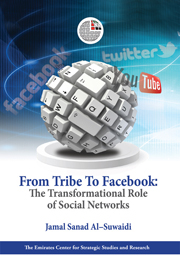Book contents
- Frontmatter
- Contents
- Acknowledgments
- Introduction
- Keywords
- Scope of the Study
- Previous Studies
- Social Networks: Concept and Role
- Statistical Indicators of Main Social Networks
- The Social Networking Age
- Data-entry Potential of Social Networks
- Impact of Social Networks
- Prospects for the Relationship between Traditional Media and Social Networks
- Legal Problems Associated with the Use of Social Networks
- Social Networks: Future Prospects
- Conclusion: Various Future Prospects
- Notes
- Bibliography
- Index
Previous Studies
Published online by Cambridge University Press: 05 September 2014
- Frontmatter
- Contents
- Acknowledgments
- Introduction
- Keywords
- Scope of the Study
- Previous Studies
- Social Networks: Concept and Role
- Statistical Indicators of Main Social Networks
- The Social Networking Age
- Data-entry Potential of Social Networks
- Impact of Social Networks
- Prospects for the Relationship between Traditional Media and Social Networks
- Legal Problems Associated with the Use of Social Networks
- Social Networks: Future Prospects
- Conclusion: Various Future Prospects
- Notes
- Bibliography
- Index
Summary
In her study “The Emerging Role of Social Media in Political and Regime Change,” Rita Safranek examines how social networks operate, as well as their role in the political upheavals taking place in the Philippines, Tunisia, Egypt and other countries, and discusses those critics of the ‘Twitter revolution.’ Her study concludes that:
Social media is no ‘silver bullet’ when it comes to political change. The use of social media tools – text messaging, e-mail, photo-sharing, social network, and the like – does not have a single preordained outcome. Therefore, attempts to outline their effects on political action are too often reduced to dueling anecdotes.
In fact, the real power of “social media” lies in its support of civil society and social work, which will cause changes that could take years and decades to manifest, rather than weeks or months.
Philip Canton's study “Social Media and the Arab Spring: An Analysis of the Strategic Geopolitical Impact and the Implications for the Future,” states that, “Social media represents a strategic challenge both to governments and citizenry as it can be used to ferment [sic] dissent as well as propel democratic values for an entire society.” Social networks will continue to play a significant role in future international politics and, “… can be a potent tool in the hands of citizens who will use this instrument for social change and liberation movements against power elites and even entrenched states.”
Perry Viscounty, Jennifer Archie, Farnaz Alemi, and Jenny Allen explain in their study “Social Networking and the Law” that social networking sites face pressing legal challenges due to the lack of new legislation that can deal with the legal consequences of social network usage.
- Type
- Chapter
- Information
- From Tribe to FacebookThe Transformational Role of Social Media, pp. 16 - 20Publisher: Emirates Center for Strategic Studies and ResearchPrint publication year: 2013



